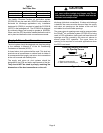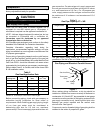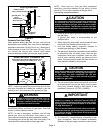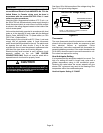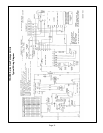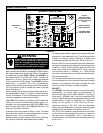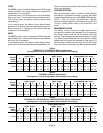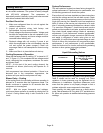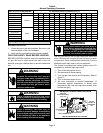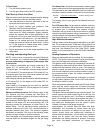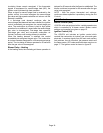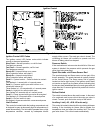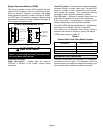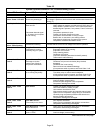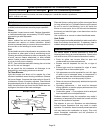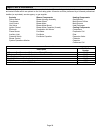
Page 19
circulating blower remain energized. If the thermostat
signals a requirement for second−stage heat (W2), the
ignition control initiates high heat operation.
When a signal for second stage heat is received by the
ignition control, the control energizes the second−stage
gas valve and high−speed combustion air inducer until the
demand is satisfied.
If a first−stage heat demand continues after the
second−stage heat demand has been satisfied, the ignition
control immediately de−energizes the second−stage gas
valve. The combustion air inducer is held in high speed
operation for an additional 1 second after the second−stage
gas valve is de−energized. First−stage heat operation
(first−stage gas valve and low−speed combustion air
inducer) continues until heating demand is satisfied.
When the heating demand is satisfied, the control
immediately de−energizes the gas valve. The combustion
air inducer remains energized for a 30−second post−purge
period. The circulating air blower operates for 90 seconds
after the gas valve is de−energized.
Blower Delay − Heating
In the heating mode, the circulating air blower operation is
delayed for 30 seconds after the flame is established. The
blower continues to operate for 90 seconds after the gas
valve is de−energized.
NOTE − With the proper thermostat and subbase,
continuous blower operation is possible by closing the R to
G circuit.
Unit Controls
Blower Control (A54)
15GCSX units are equipped with a variable speed motor
which is controlled by a blower control. Blower control
settings and operation are given on page 12.
Ignition Control (A3)
The 15GCSX unit includes an ignition control which
controls the combustion air inducer, gas valve and spark
electrode. It receives signals from the main and auxiliary
limit switches, the roll out switch, the pressure switch and
the flame sensor. LED codes and flash rates are given on
page 17. The ignition control is shown in figure 14.



